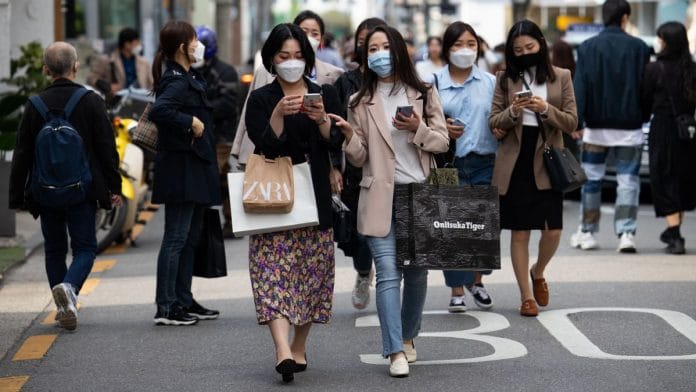New Delhi: Patients who test positive for Covid-19 even after recovering from the virus are not likely to spread the infection to others, a study of 285 such patients in South Korea shows.
The South Korean health authorities had raised an alarm last month after over 200 patients tested positive for the virus after recovering from Covid-19.
To understand what was causing this relapse, the Korea Centers for Disease Control and Prevention (KCDC) launched a study of these patients in April. As many as 447 patients who had tested positive for the virus after recovering from the disease were identified.
Of these, the findings from 285 patients and 790 of their contacts were completed and published.
The research found that 44.7 per cent or 126 of the 285 patients developed symptoms of the Covid-19 again after being discharged.
However, none of the 790 contacts of these individuals developed Covid-19 infection as a result of exposure to these ‘re-infected’ patients.
Moreover, virus samples collected from the patients who tested positive after discharge could not be cultured or regrown in the lab. This indicates that these individuals were carrying non-infectious residue viral particles, instead of the live coronaviruses.
Also read: South Korea’s very successful testing strategy has a homophobia problem
Revised guidelines for ‘re-positive’ patients
In the light of these findings, the KCDC has now revised its guidelines on managing patients who show symptoms after discharge.
While patients who were discharged were earlier recommended to self isolate further for 14 days and undergo a test if they developed symptoms after discharge, these measures will no longer be taken. The KCDC will also stop quarantining contacts of recovered patients who test positive.
However, the KCDC will continue to investigate these cases and their contacts. The health body also added that “re-positive” cases will now be referred to as “PCR re-detected after discharge from isolation.”
Earlier this month, experts from the Seoul National University had explained that polymerase chain reaction (PCR ) tests — used for COVID-19 diagnosis — cannot distinguish between live and dead viruses.
According to infectious disease physician Oh Myoung-don of Seoul National University, fragments of dead virus cells can take months to clear from recovered patients.
Also read: How second Covid waves are hurting recovery in China, South Korea and Hong Kong






